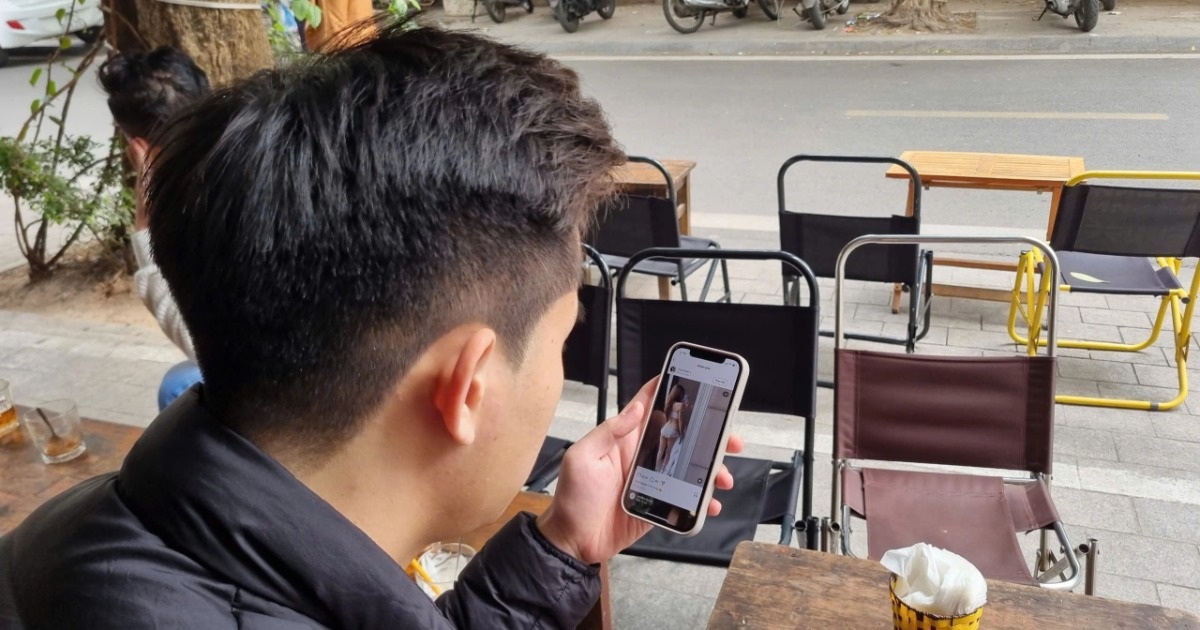Scammers exploit social media to target victims (Photo: Trung Nam).
Ahead of Valentine’s Day and as part of Safer Internet Day, Meta has shared tools to help users stay safe on Facebook, Messenger, Instagram, and WhatsApp. The company also released new research on online romance scams and updates on measures to combat these fraudulent activities.
What Are Romance Scams?
Romance scams are a common form of fraud where scammers approach victims through various means such as messages, phishing emails, dating apps, social media posts, forums, and more—posing as romantic interests.
Scammers often pretend to be attractive, single, and successful individuals, typically military personnel or entrepreneurs. They send out mass messages to multiple targets using a “spray and wait” tactic. If someone responds, the scammer builds trust over time before asking for money or luring them into fake investment schemes.
Tips to Avoid Romance Scams Before Valentine’s Day
As Valentine’s Day approaches, users should be wary of romance scams that tend to spike during this period. Here are some tips from Meta to help protect yourself:
Be cautious with unknown messages: Users can limit who can contact them by updating their privacy settings on social media platforms.
Verify unfamiliar accounts: Always check an account’s details online, including its creation date, or use reverse image search tools to confirm authenticity.
Beware of requests for personal information or money transfers: Before sending money via gift cards, payment apps, or sharing personal data, consult with trusted friends or family members to avoid falling victim to scams.
Common Types of Romance Scams to Watch Out For
Military impersonation: Meta has dismantled numerous groups posing as military personnel to target victims on Facebook, Instagram, Threads, TikTok, and YouTube.
Scammers often post content expressing loneliness and seeking love. If someone responds, they will invite them to chat via Facebook Messenger, Telegram, or WhatsApp, usually using international phone numbers.
They then ask victims to transfer money via banks or online gift cards, claiming it’s for long-distance call fees or sending gifts.
Celebrity impersonation: Scammers post photos or videos of celebrities in fan groups or comment sections, pretending to be looking for love.
If someone interacts, the scammer suggests continuing the conversation on Telegram, WhatsApp, or other messaging apps. They then request money transfers via bank accounts, cryptocurrencies, or gift cards, citing reasons like helping the celebrity buy gifts or resolving financial difficulties.
Fake matchmaking services: Scammers advertise bogus matchmaking services, promising introductions to wealthy Western men or connecting women from Africa to build relationships.
These accounts frequently post content about fake “eligible bachelors,” claiming to live or travel in Africa and seeking love, even promising future spouses residency in a Western country.
If someone shows interest, they invite them to join Telegram or WhatsApp groups and demand fees to receive the “bachelor’s” contact information.
Meta’s Latest Anti-Scam Tools
Across all its platforms, Meta automatically detects and removes harmful accounts, including those impersonating others.
However, since some accounts don’t engage in scams immediately, Meta issues warnings to users, encouraging them to pause and proceed cautiously when suspicious signals are detected. Additionally, Meta imposes restrictions on accounts showing signs of suspicion.
On Facebook Messenger, the Safety Notices feature has been introduced to alert users when chatting with potentially suspicious accounts, especially if the account appears to be from another country.
On Instagram, Meta is testing a similar feature for teenagers and plans to expand its application to more users in the coming months.
Meta has also begun testing a new layer of protection using facial recognition technology.
When the system detects a suspicious account, or if users report a fake profile, Meta compares the account’s profile picture with public figures’ profiles on Facebook and Instagram. If a match is found, the fake account is removed immediately.
Source link: https://dantri.com.vn/suc-manh-so/canh-bao-ve-lua-dao-tinh-cam-nhan-dip-le-tinh-nhan-20250213122014518.htm



